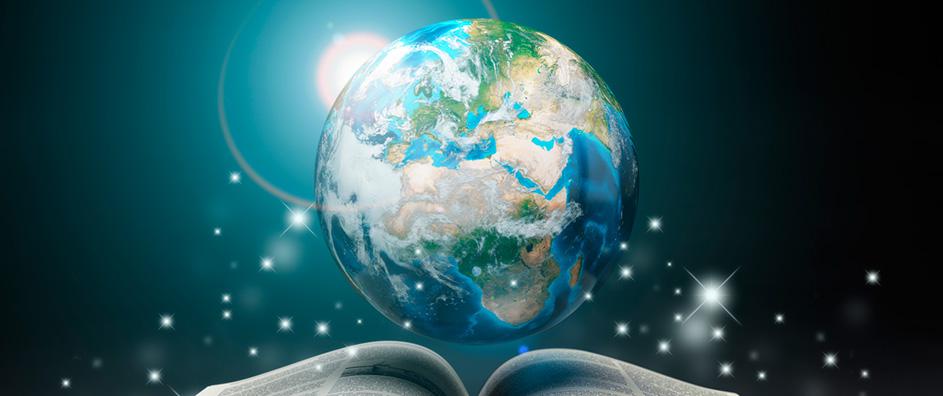In a world rife with turmoil and existential crises, the Bahá’í teachings regarding Earth as “The Original Magic Kingdom” present a revitalizing paradigm. This perspective invites individuals to re-imagine their relationship with the planet and to cultivate an ethos of stewardship and reverence. It beckons all to recognize the multifaceted dimensions of existence, weaving together the threads of spirituality, environmentalism, and human unity. Within this framework, profound promises unfold—promises that pivot on the ideals of renewal, interconnectedness, and holistic responsibility.
To embark on this exploration, one must first disentangle the very essence of the term “magic kingdom.” Far from the fantastical connotations typically associated with the term, Bahá’í teachings elevate it to signify an innate divinity present in nature’s splendor. This kingdom is grounded in the belief that the Earth is not merely a physical entity but a living, breathing manifestation of divine will. Accordingly, it is imbued with purpose, replete with opportunities for spiritual and moral development.
At the core of this perspective lies a promise: that a conscious engagement with nature can lead to profound insights about oneself and humanity at large. The belief that every element of the Earth—from the towering mountains to the minutest flower—serves as a reflection of the divine encourages an appreciation for biodiversity. Each ecosystem, therefore, becomes not just a backdrop for human activity but a vital participant in the cosmic narrative.
In contemplating the Earth as a magical kingdom, one is challenged to reassess human dominion over nature. Traditionally, many cultures have viewed themselves as rulers of their realm, sometimes leading to exploitation of the very resources that sustain existence. However, the Bahá’í perspective posits that humans are not sovereigns, but rather stewards entrusted with the caretaking of this kingdom. This shift monopolizes a reorientation of thought, where dominion is relinquished for stewardship—a relationship built on respect and responsibility.
Such an understanding transcends mere environmentalism; it engenders a broader spiritual awakening. Appreciating the profundity of natural beauty inspires altruism and environmental advocacy. The teachings advocate that by nurturing and protecting the Earth, individuals simultaneously nourish their own souls. This reciprocal relationship serves to cultivate a sense of interconnectedness—each action reverberating across the fabric of societal wellbeing.
Furthermore, the implications extend beyond individual practices to societal frameworks. In envisioning the Earth as a magic kingdom, communities can mobilize toward collective efforts aimed at sustainability. This notion stokes the fires of innovation, compelling societies to champion technological advancements that harmonize with environmental integrity. Sustainable practices become the norm rather than exceptions—an economic and ethical imperative anchored in the conviction that humanity’s fate is integrally linked with the Earth’s health.
The promise of Earth as the Original Magic Kingdom is equally relevant in interpersonal relationships. The Bahá’í teachings underscore unity as a pivotal principle, advocating for the elimination of prejudice and discord. The planet becomes not solely a physical space but a shared home, urging individuals to transcend artificial boundaries. Social cohesion flourishes when the emphasis shifts from divisive perspectives to embracing a collective identity as inhabitants of the same magical kingdom.
In lifting the veil of mundane existence, the Bahá’í perspective invites a deeper inquiry into the meaning of existence itself. It asserts that life’s complexities are imbued with celestial significance. Each moment offers a lesson, each encounter serves as an opportunity for growth. This transformative lens steers individuals toward a path of enlightenment, where the mundane transcends to the extraordinary, igniting curiosity and wonder about the inner workings of life.
Engaging with the Earth’s magic kingdom also begs a confrontation with personal responsibility. It demands introspection about consumption patterns, lifestyle choices, and moral fortitude. How does one honor this kingdom in daily life? What sacrifices ought to be made to foster a spirit of harmony with the environment? These inquiries evoke an urgency to reassess values, inciting profound changes in behavior conducive to sustainability.
Moreover, embracing this ideology intrigues the scientific community. The richness of biodiversity, as expressed through ecosystems, is a landscape replete with mysteries yet to be unraveled. This quest for understanding natural order complements spiritual inquiry; sciences offer insights that often echo theological principles. By fostering a discourse between these realms, a more holistic understanding of existence emerges, paving the way for breakthroughs in ecological preservation and sustainable living.
The intertwining of Bahá’í teachings with the human experience reveals a tapestry of transformation inspired by the Earth. This narrative, steeped in reverence for the magical kingdom we inhabit, encompasses a myriad of promises: of renewal, connectedness, and ultimate understanding. It enjoins humanity to look beyond the surface, peeling back layers of ignorance to reveal truths that resonate within the depths of the soul.
Ultimately, the call to view Earth as the Original Magic Kingdom is more than a philosophical proposition; it is an ethical imperative that challenges every individual to embrace a life of purpose and conscience. It frames the celestial potential inherent in every interaction with the natural world. In reshaping perspectives, an invitation is extended to actively engage in the safeguarding of this sacred kingdom, fostering a legacy of harmony for future generations. The choice may well define the ultimate fate of humanity and its magical home.
